Ticket price rises 'will mean more tourist fans taking selfies'
- Published
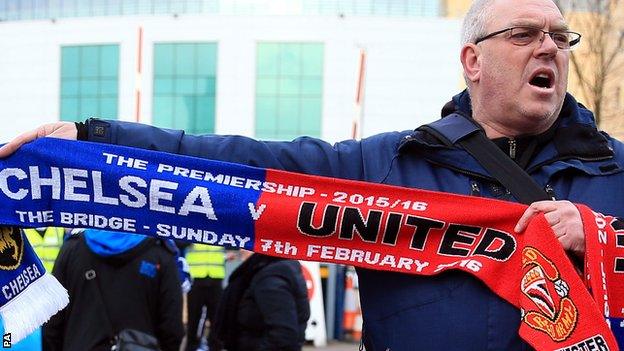
Premier League clubs will meet again next month to discuss ticket prices
Stadiums will be filled with "tourists" waving "half and half scarves and taking selfies" if ticket prices rise further, warned Football Supporters' Federation chairman Malcolm Clarke.
Thousands of Liverpool fans walked out of Saturday's Premier League game against Sunderland at Anfield in protest at next season's prices, which include a £77 matchday ticket.
The FSF is meeting fans' groups to discuss further action, including a potential mass walkout across a weekend of Premier League fixtures.
Clarke said his organisation wants to make sure top-flight clubs "really do deliver some sort of a package" to help bring down the price of tickets.
Speaking to the BBC, he said clubs would "lose the atmosphere and link to the local community", with match-going supporters replaced by "foreign tourists with half and half scarves taking selfies of being in an English ground".
What football is costing you |
|---|
Will clubs lower ticket prices?
Clarke claims the money from the new £5.1bn television rights deal, which begins next season and guarantees the Premier League's bottom club £99m a year, means clubs could let every supporter into every home game free next season and still bring in the same revenue as this season.
BBC Sport's Price of Football study found, external two thirds of Premier League tickets were frozen or reduced in price in 2015, but there is increasing pressure for further reductions to follow.
To date, Arsenal, Crystal Palace, Manchester United, Norwich and Swansea have frozen season-ticket prices for 2016-17, while West Ham have reduced theirs for their move to the Olympic Stadium.
Eight other Premier League teams - Chelsea, Spurs, Manchester City, Leicester, Bournemouth, West Brom, Sunderland and Watford - told BBC Sport they will not announce prices until later this year. The rest are yet to respond.
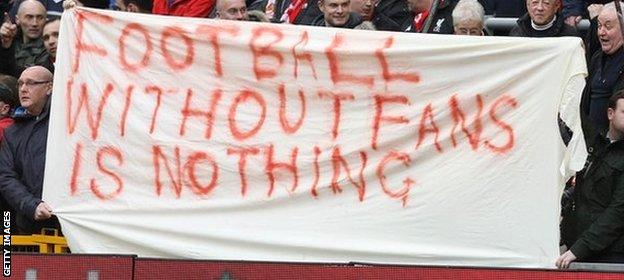
Liverpool fans are protesting about a £77 top-priced ticket
Is a co-ordinated boycott realistic?
"Until there is collective action from supporters then the Premier League will continue to ignore calls for reform on such issues as ownership, governance, regulation and ticket pricing," said Ian Stirling, the vice-chairman of Manchester United Supporters' Trust.
Tim Payton, from the Arsenal Supporters' Trust, said a boycott was "very difficult" for fans, who want to support their team.
But he added: "There comes a point when you really have to send a message.
"I think we've seen in the last few days that enough is enough for many football fans. It's time to share some of that money with fans and stop squeezing us until we can no longer support the team."
Payton said the issue was "particularly acute" at Arsenal, who had the highest-priced single matchday ticket in last year's Price of Football study at £97.
"If you look around, there aren't many 18, 19, 20 year-olds. Where's the future of the game?" said Payton.
"We think the sensible people at the Premier League understand that.
"They know TV pictures sell around the world because of our fans and our tribalism and we've just got to persuade some of the clubs now to start introducing price caps and to start to do more to help the fans keep going to the game that we love."
Klopp calls for ticket row 'solution'
What about away ticket prices?
The majority of Premier League clubs voted in favour of capping away ticket prices at £30 in a secret ballot held during a meeting last week, said Clarke.
However, the proposal needed the backing of 14 clubs to be implemented and it failed to generate enough support.
The clubs will reconvene in March to discuss the issue again.
Premier League director of communications Dan Johnson told BBC Radio 5 live there was an "absolute unanimity of purpose" to help away fans, but "no consensus as yet what form that might take".
He added: "There's still lots of ideas in play.
"We're working on it, clubs are working on it and there will be something meaningful and substantial in place for the start of next season."
- Published9 February 2016
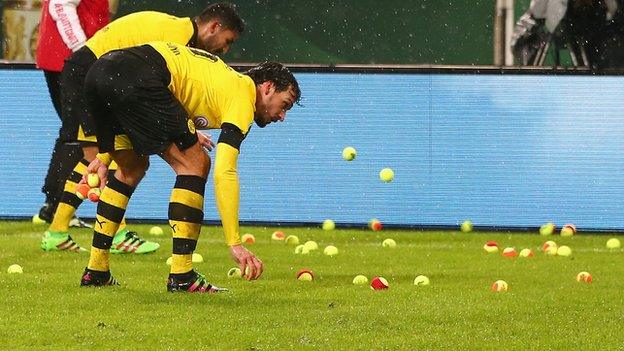
- Published9 February 2016
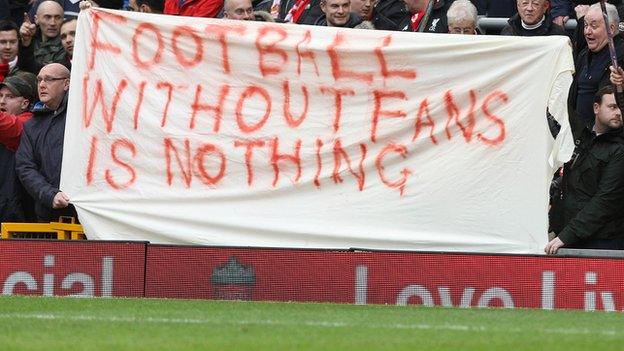
- Published14 October 2015
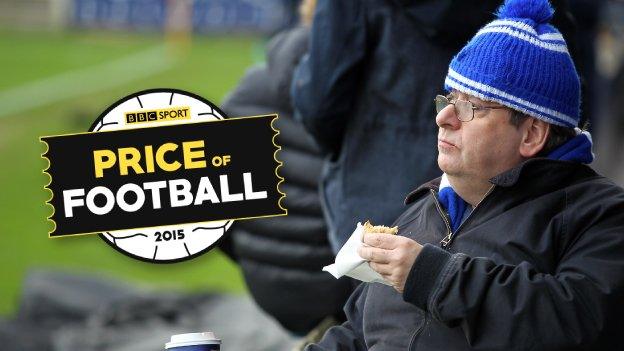
- Published8 February 2016
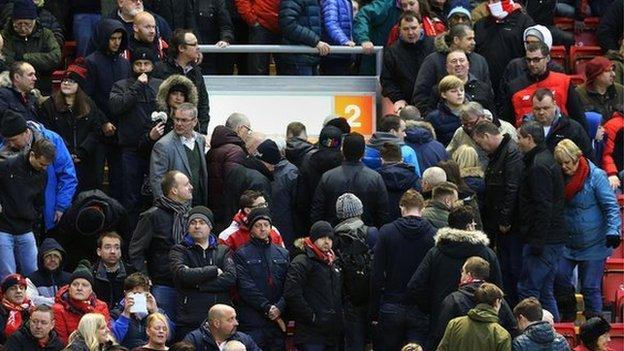
- Published6 February 2016
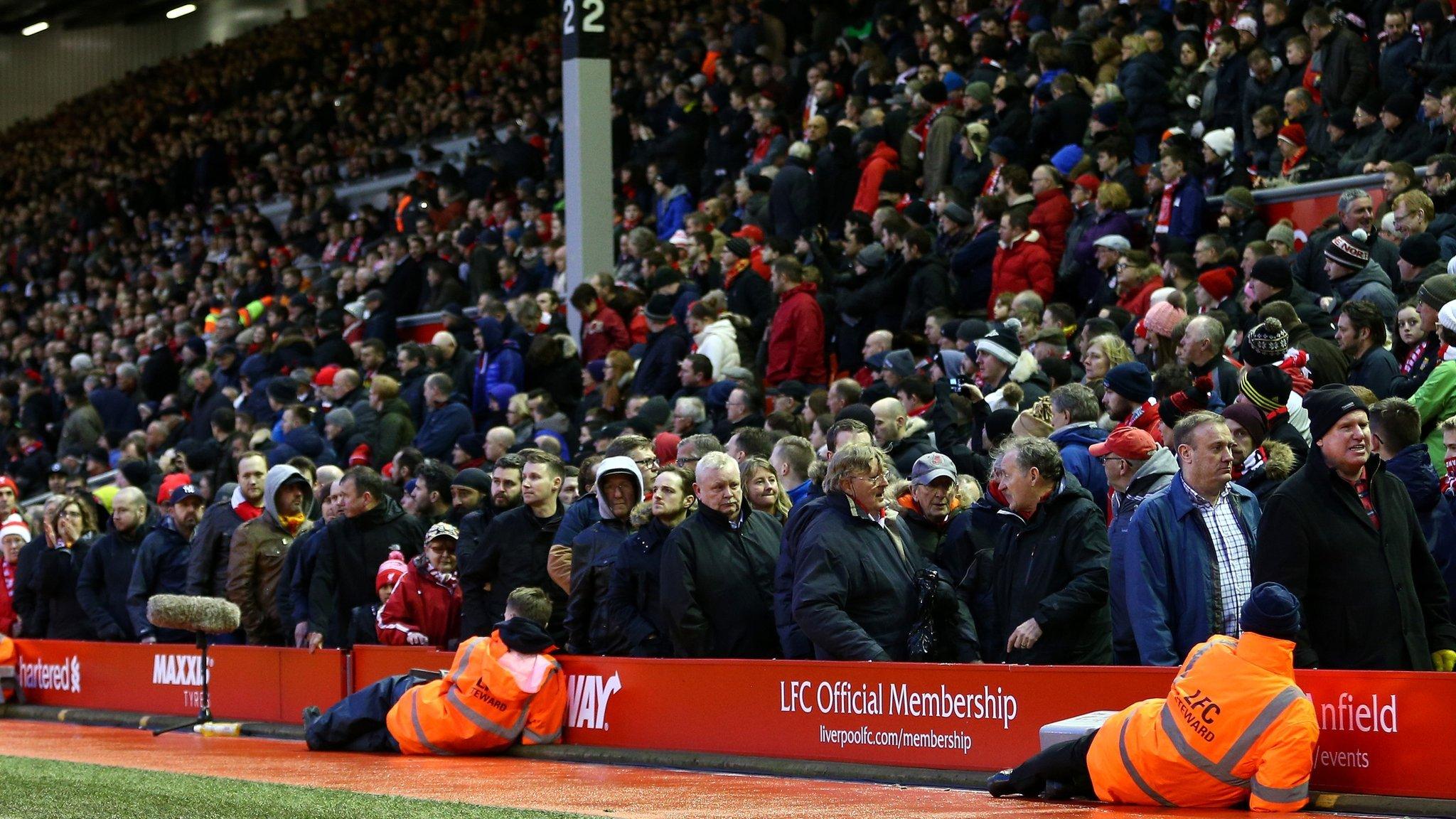
- Published20 June 2016

- Published7 June 2019

- Published2 November 2018
